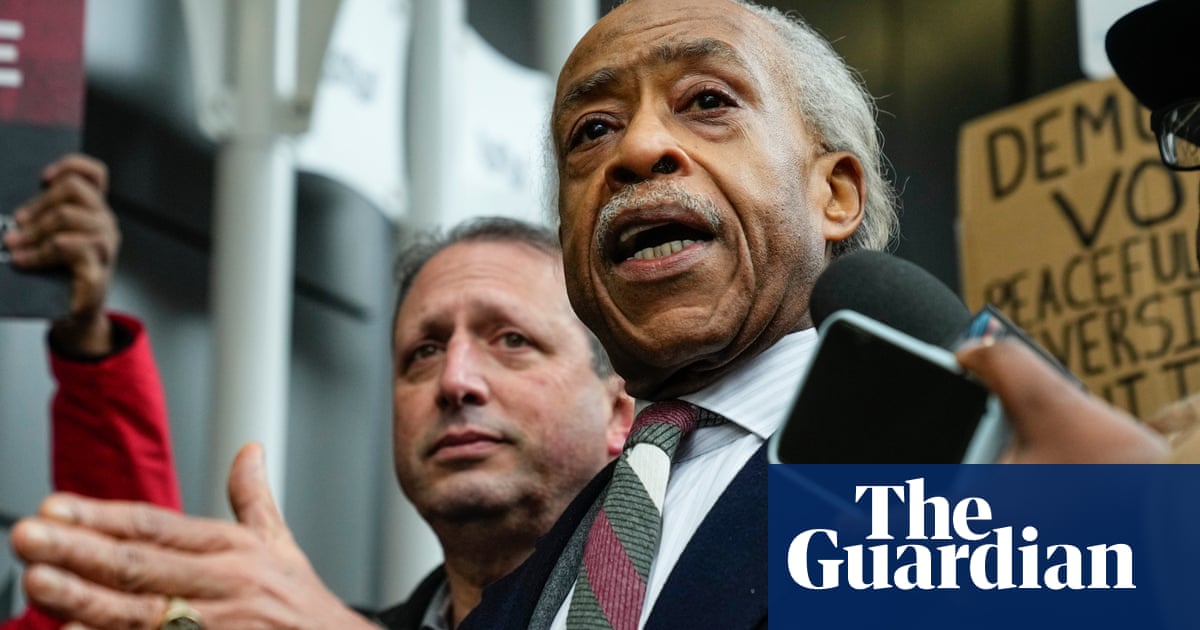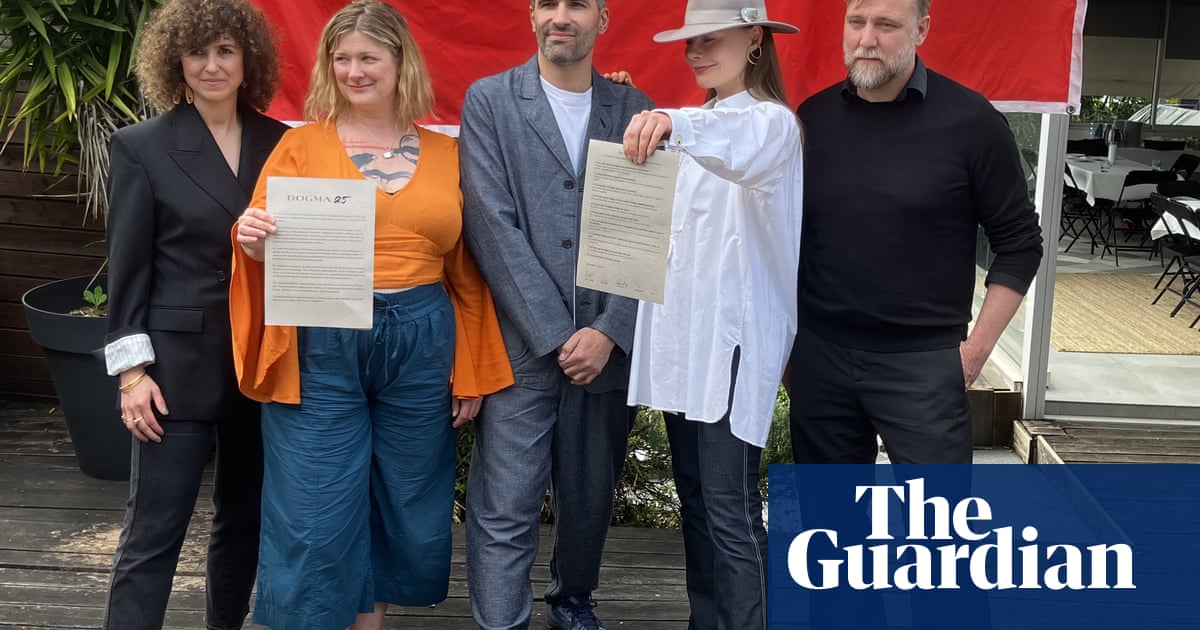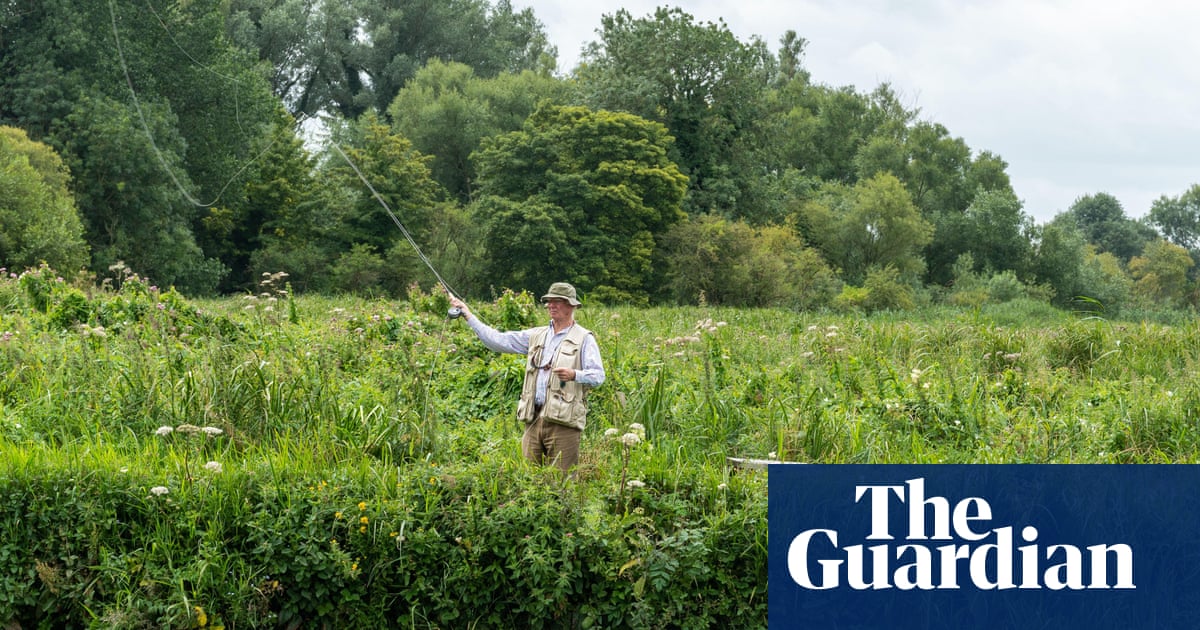John Donnelly’s new play is perceptive about early parenthood, especially the way a baby’s arrival stress-tests your relationship. He particularly captures the strange combination of surety and fragility in which families take shape. Designer Tom Piper has shrunk Hampstead’s wide stage and surrounded it by scaffolding to create a sense not just of lives under construction but also the preciousness of a family unit sheltered from danger. Donnelly’s drama suggests a kind of 100-minute cortisol release as a mother and father battle with fight or flight responses. But despite the nuanced domestic backdrop, Apex Predator’s interwoven supernatural and thriller elements are bloodless, albeit not literally.
Mia and Joe live in London with their 11-year-old son, Alfie, and five-month-old Isla. Joe is frequently away for work of a sensitive, classified nature. Mia is driven to despair by sleep deprivation, exacerbated by the noise from upstairs neighbours. To make matters worse, Alfie has been biting other children but his art teacher, Ana, is here to help. Maybe she could give Alfie some extra free-of-charge tuition, take Mia on a boozy night out, perhaps offer her own breast for Isla to suckle?

A spoiler is probably required here: this play contains vampires. In between glasses of wine, Ana (played with a sly, icy smile by Laura Whitmore) reveals herself to be a bloodsucker and Mia (the always arresting Sophie Melville) receives her venom. Vampirism is presented as an act of self-fortification to deal with the world’s abundant perils, despite the fact that these “apex predators” are traditionally cursed to a pretty miserable existence.
Joe (Bryan Dick) is in fact a very modern sort of vampire hunter: he monitors encrypted online forums visited by deluded souls who believe themselves to be the undead. Reality blurs with nightmare, dark comedy is sometimes awkwardly coupled with horror, and scenes from the couple’s flat, the school and the local GP’s examination room merge together. Blanche McIntyre’s production, despite the screeches of Chris Shutt’s sound design, is more bewildering than disturbing. Cutting the interval would help propel the story’s descent and Ingrid Mackinnon’s movement direction could be heightened in a staging that fails to fuse the play’s components as masterfully as the not dissimilar Let the Right One In.
Whitmore’s vampire has an unvaried uncanniness: there is never the sense of a weary being who has stalked the land for hundreds of years, witnessing London ablaze and watching “a man called Burbage”. While the hold Ana has over Mia is unconvincing, Donnelly writes snappy, funny dialogue for Mia and Joe, their heated arguments realistically conveyed by Melville and Dick, ever aware that Alfie (played at this performance by Callum Knowelden) is within earshot. The humorous lines given to Leander Deeny, as one of Ana’s victims, are less successful.
Its scenes of foggy parental psychodrama are similarly vivid to Morgan Lloyd Malcolm’s 2021 drama Mum, which also starred Melville. But fundamentally, for Donnelly’s ambitious play to succeed, you have to feel swept into its supernatural world and I just didn’t bite.
-
At Hampstead theatre, London, until 26 April

.png) 1 month ago
28
1 month ago
28

















































